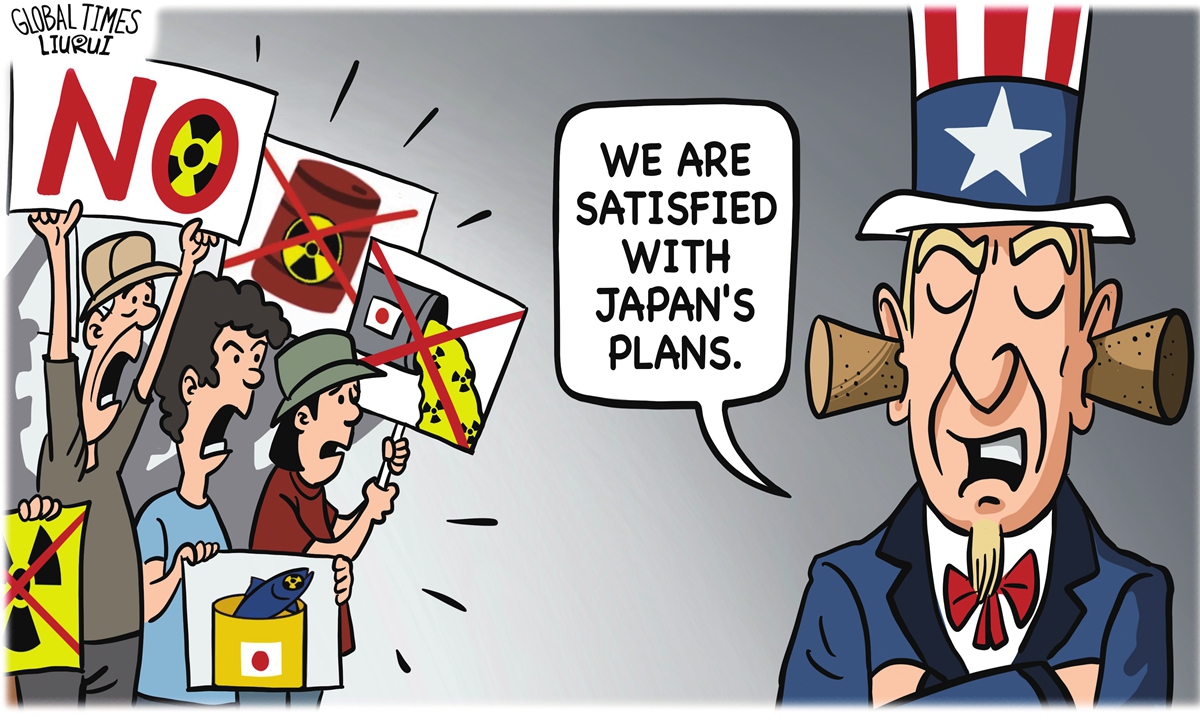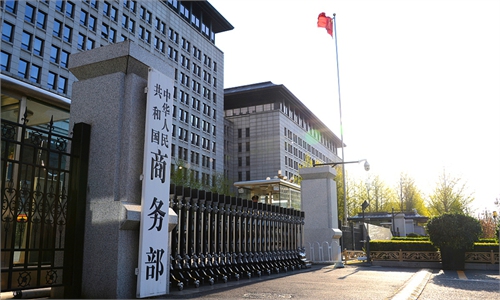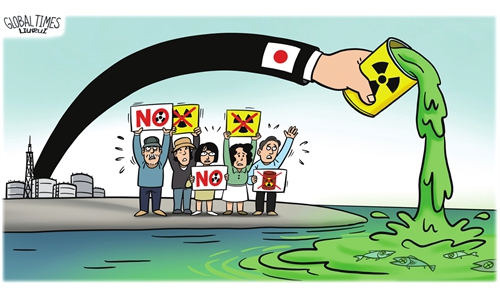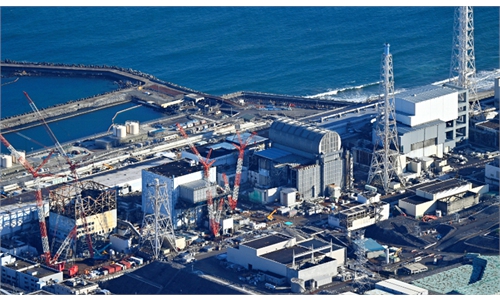
Illustration: Liu Rui/GT
Following the G7 statement which called for "immediate repeal" of import curbs on Japanese food products, US Ambassador to Japan Rahm Emanuel revealed on Monday that the US "has started bulk buying Japanese seafood to supply its military there in response to China's ban," according to Reuters.Against the backdrop of affected countries, including South Korea and China, banning the import of Japanese seafood due to the significant impact of Japan's nuclear-contaminated wastewater discharge, the US' move aims to demonstrate support for its ally and endorse Japan's wastewater discharge.
Regardless of the international concerns in Japan's move that seeks to export nuclear pollution risks to the world, Emanuel still expressed his support for the US ally, with a purpose to show that when Japan encounters resistance, the US will "lend a hand." However, how much support can the US offer?
The first purchase of seafood by the US under the scheme mentioned by Emanuel involves just shy of a metric ton of scallops, a tiny fraction of more than 100,000 tons of scallops that Japan exported to the Chinese mainland last year, according to Reuters. Japan's official statistics released in August revealed that the US ranks top among the countries that have reduced imports of seafood from Japan in the first half of this year, with a total decline of 8.3 billion yen (around $55 million).
If the US truly believes that seafood from Japan is safe, why is it not importing more? Why is it not the US itself importing in large quantities, but rather the US military stationed in Japan?
The "bulk buying" revealed by Emanuel is more used to show the US' diplomatic gesture, Liu Weidong, a research fellow from the Institute of American Studies of the Chinese Academy of Social Sciences, told the Global Times. He added that the actual effect on Japanese fisheries will be very limited. Instead of saying it is a kind of support, it would be fairer to be described as a diplomatic show and a "double standard" behavior.
In order to safeguard food safety and public health, countries have the right to take corresponding preventive measures, the Chinese Embassy in Japan said when rebuking the G7 statement on Monday. The Japanese government, in spite of the serious concerns of the international community, insisted on initiating the discharge of nuclear contaminated water into the sea, blatantly transferring the risk of nuclear contamination to the whole world. The ban on Japanese food products imposed by concerned countries is reasonable, legitimate, and driven by the desire to protect the health of their own people.
However, Emanuel has not only publicly backed up Japan's dump plan, but also criticized China many times to grab limelight. According to Reuters, Emanuel visited the Fukushima region after China's release of the ban on Japanese seafood and said he expected the US to support Japan at the World Trade Organization. These deeds have aroused widespread controversy and criticism.
It's evident that now that China has banned seafood from Japan, the US ambassador to Japan wants to take advantage of this chance to target China. Emanuel's blabbering even caught the attention of the White House previously. NBC reported that some administration officials have been "upset" with Emanuel's previous comments about China. Officials at the National Security Council told Emanuel's staff that his comments "risk undermining the administration's efforts to mend deeply strained relations with China."
Foreign diplomacy should be based on rationality, equality and mutual respect, not attacks and provocations. The dumping of nuclear-contaminated wastewater is originally a scientific issue. Nevertheless, some countries and politicians are accustomed to attributing everything to politics and international relations, and stirring up populist sentiments, such acts are wrong and meaningless.



